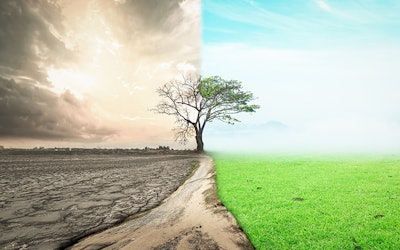
New information about the greenhouse gas methane reveals that animal agriculture plays a smaller role in causing climate change than previously thought.
“It’s important to understand that our knowledge around greenhouse gases, particularly around methane, is changing drastically. In contrast to other greenhouse gases, there are not just methane sources, but also methane sinks,” Dr. Frank Mitloehner, Professor and Air Quality Extension Specialist for the Department of Animal Sciences at the University of California, Davis (UC Davis), said September 28 during the Delmarva Poultry Industry (DPI) 55th National Meeting on Poultry Health, Processing, and Live Production.
“What the critics of animal agriculture typically leave out is that methane is not just produced by poultry and livestock, but that the industry also serves as a very strong sink to remove the gas from the atmosphere.”
Agriculture gets a bad rap
Animal rights groups and manufacturers of meat alternatives target animal agriculture as a major contributor to greenhouse gases. This has influenced consumer trends and purchases.
“Greenhouse gases are gases that form a blanket in our atmosphere, retaining heat from the sun. When it comes to poultry and livestock, methane is the main greenhouse gas that comes up. Poultry is not as big of a source of methane as beef and dairy, but it is still in the crosshairs of people who say they eat vegan or vegetarian because of the carbon footprint of agriculture,” said Mitloehner.
Not actually true
In reality, climate scientists are now learning that animal agriculture has a lower carbon footprint than originally thought.
“The vast majority of climate scientists will tell you that most of the human contribution to climate change is the use of fossil fuels. Fossil fuel use is responsible for 80% of greenhouse gases in the U.S. In contrast, all livestock and poultry combined is less than 4%,” Mitloehner added.
“There’s no question that livestock and poultry do play a role in climate change. However, we now know how to quantify those impacts. We know which impacts are significant and which impacts are not. That’s the first step.”
Like what you just read? Sign up now for free to receive the Poultry Future Newsletter.


















